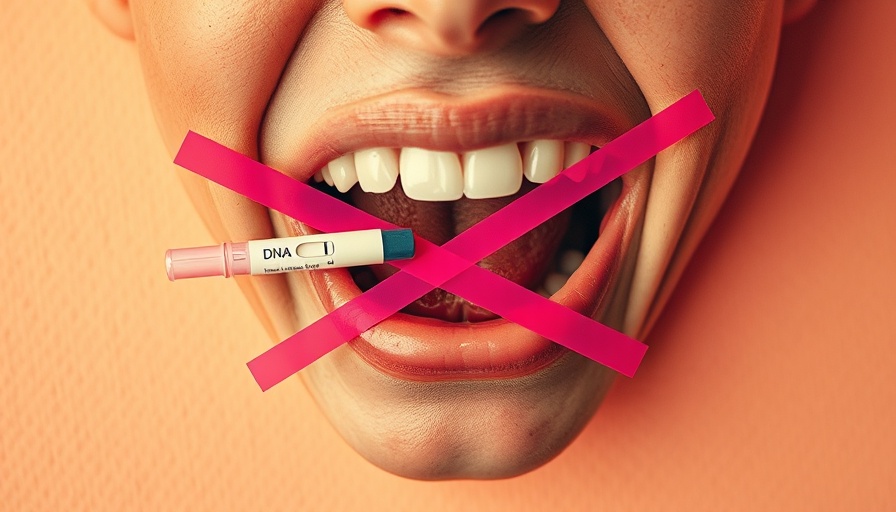
Understanding the Urgency of Deleting Your 23andMe Data
As the landscape of personal data privacy shifts dramatically, individuals who have taken DNA tests from companies like 23andMe are increasingly aware of the need to manage their genetic information wisely. With 23andMe's recent filing for bankruptcy and a series of leadership shakeups, the concerns surrounding personal privacy have escalated. Experts fear that in the event of a sale, the new ownership might not uphold the same data protection standards that 23andMe claims to follow. As a response, privacy advocates are urging users to consider immediate action, specifically deleting their accounts to safeguard not only their own data but that of their relatives too.
The Implications of Data Retention Post-Deletion
While users may think that deleting their accounts from 23andMe wipes the slate clean, the reality is a bit more complicated. The company retains certain personal data even after a deletion request is made. This includes basic information that helps comply with legal obligations, such as the user’s date of birth, sex, and associated identifiers. This lingering presence of data raises questions about the efficacy and trustworthiness of a complete data deletion process and highlights potential vulnerabilities given the company's current instability.
The Role of Third-Party Companies in Data Privacy
As 23andMe emphasizes its commitment to customer privacy, external factors come into play due to existing agreements with third-party genotyping laboratories. Privacy concerns deepen when considering that any genetic information shared previously under user consent for research purposes cannot be removed from those studies, although it won’t feature in future research. This serves as a cautionary tale about the interconnected nature of personal data sharing and the obligations surrounding it, especially as businesses pivot to merge with or be sold to new entities.
How to Delete Your 23andMe Account
If after weighing the risks you decide to proceed with deleting your 23andMe data, it’s a straightforward process but one that requires careful thought due to its irreversible nature. The company reiterates that once deleted, account recovery is not possible, though some extracted data may still be kept for legal reasons. For those wishing to take this step, detailed instructions can be found directly through 23andMe, providing users with guidance on how to navigate the deletion process efficiently.
A Call to Broader Action: The Bigger Picture of Data Privacy
The situation with 23andMe reflects a larger urgency that should resonate with industry leaders and decision-makers across the biotechnology and health sectors. As organizations grapple with technological advancements and evolving user expectations surrounding privacy, it becomes vital for executive leadership to establish robust policies that not only align with current laws but also anticipate future risks. By prioritizing strong data governance practices and continuous communication about privacy measures, companies can earn the trust of their customers and mitigate risks associated with data mismanagement.
As the narrative unfolds around personal genetic data and privacy rights, it is imperative for users and industry stakeholders alike to pay close attention to these developments. With increased awareness and informed decision-making, individuals can better protect their personal information while setting a precedent for data practices that prioritize consumer privacy integrity.
 Add Row
Add Row  Add
Add 




Write A Comment